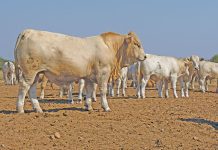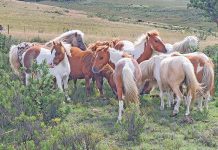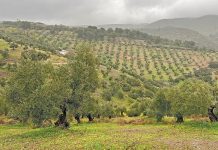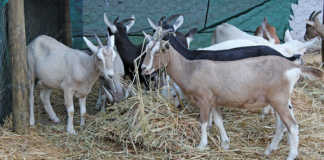
Photo: Wikimedia Commons
When it comes to selecting the ideal canine companion for South African farmers, several factors must be considered.
Security being at the top of mind for many of us, the dog should be big and smart enough to defend the family but still be controlled by its owner.
Versatility for me is the next major influence on what breed to consider. It’s a great idea to consider a breed that will enhance your life as a whole. You are not going to get a Mastiff if you are a keen bird shooter. You should probably look at a Labrador so that you can utilise the dog in many different areas of your life.
Compatibility with family and children is a big factor. If you have a family, you are going to want to look at dogs that are playful and more tolerant of children.
Considering that we like to take our dogs with us all over the place, we need to look at breeds that are easier to control around other people and animals. This factor has more to do with training than genetics, so trainability is key here.
There are obviously a wide variety of breeds in South Africa, but I have chosen to highlight four specific breeds. Other noteworthy breeds are the Rhodesian Ridgeback, Australian Cattle dog, Border Collie, many of the terrier breeds, and gun dog breeds, which would all make great farming companions.
Boerboel
Originating in South Africa, the Boerboel is a sizable Mastiff-type breed specifically bred for guarding homes and farms. It has been bred for size and intimidation. Unfortunately, they can be fairly unpredictable and difficult to train.
- Strengths: Defence against predators and intruders. Size and intimidation.
- Security: Boerboels are fiercely protective of their owners and property.
- Versatility: They can only really be utilised as guard dogs.
- Family and children: Their loyalty extends to family members, including children. I would always be wary of this breed, though.
- Staff and other dogs: Proper socialisation ensures they get along with staff and other dogs. I have found that because of their size they do tend to try and overpower other dogs.
German Shepherd
Originally bred to guard sheep, as with all shepherd breeds, German Shepherds have evolved into exceptional guard dogs. Historically they have been utilised in the police forces around the world.
- Strengths: High confidence, extreme intelligence, fearlessness, and quick learning.
- Security: Calm in the home environment but vigilant and protective when threatened. Their trainability makes them easier than most breeds to handle and control.
- Versatility: They excel in various roles, including guarding and search-and-rescue. There has been a distinct split in the breed into show dogs and working dogs. If you are considering this breed, make sure you do your research on which bloodline you would prefer.
- Family and children: With proper training, they can be great family protectors. Fantastic protectors and loving members of the family.
- Staff and other dogs: Socialisation is crucial for harmonious interactions.
Belgian Malinois
The Belgian Malinois is known for its intelligence, agility and work ethic. It has become a much more popular breed in recent years due to its trainability and ‘cool’ TV presence.
This does not mean that the Belgian Malinois is the right dog for you, though.
- Strengths: Highly trainable, extremely energetic, and protective. They have a fantastically high drive to work if you can handle it.
- Security: Excellent at guarding, patrolling and tracking.
- Versatility: Used in police and military work, as well as search-and-rescue. I know of farmers using them as proper herders too. These dogs are by far the most versatile breed.
- Family and children: Requires proper training and socialisation, but if they are brought up in a family environment, they are fantastic with kids.
- Staff and other dogs: Can coexist well with proper handling and training, but again it has to do more with the correct training than the genetics.
Anatolian Shepherd
The Anatolian Shepherd hails from Turkey and excels as a livestock guardian. A big and intimidating breed, they are as loyal as you will get. If you are considering one as a family dog, just remember that they were bred to guard flocks of sheep, so they can be very defensive towards strangers.
- Strengths: Fearless, independent, and protective of the flock. This can translate to the family too.
- Security: Devoted to protecting livestock from predators.
- Versatility: Primarily suited for rural settings and open spaces.
- Family and children: May be reserved with strangers but loyal to their family.
- Staff and other dogs: Requires early socialisation to coexist with other animals. These dogs are probably the least likely to be accepting of staff and other animals. However, if socialised properly when young, they can be good.
Remember that each dog’s temperament and behaviour depend on individual training, socialisation, and the specific environment. Once you have decided on a specific breed, do not just pick the first puppy that you see.
You should put effort into selecting the correct puppy for you out of a litter. Each individual has its own personality that may correlate with or completely go against the breed norm.
Consult with experts and choose a breed and specific individual that aligns with your unique needs. I do offer guidance in breed and puppy selection, and I’m sure your local dog trainer would be able to help too.
I like to recommend that people choose a breed that can be utilised all over the farm and in their hobbies so that they can spend as much time with their companion as possible.
Email Jarred Hodgson at [email protected].












